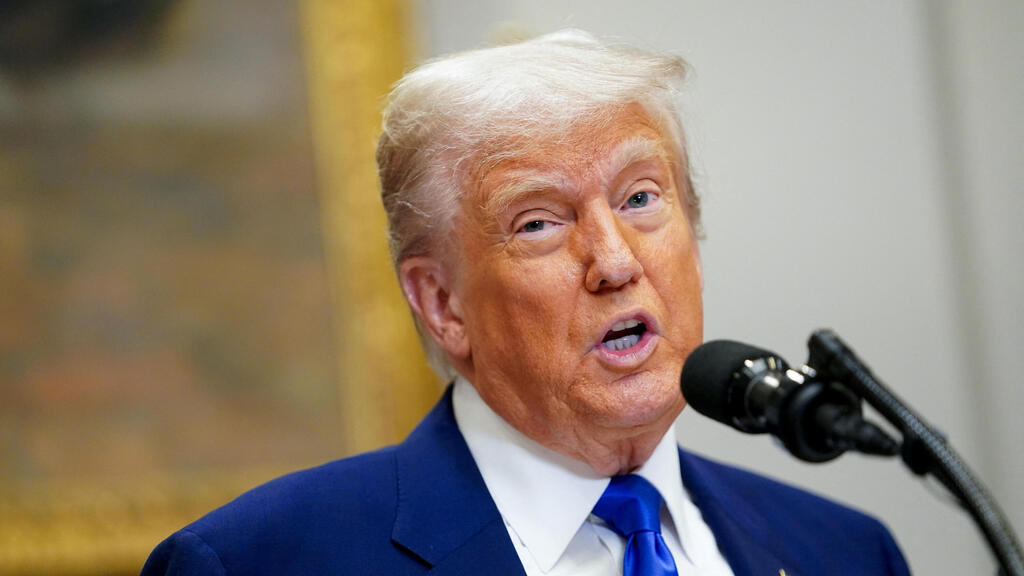U.S. President Donald Trump’s decision to slash prescription drug prices in the U.S. comes at a particularly difficult time for Israeli pharmaceutical giant Teva. As the company tries to win back investor confidence and move beyond its reputation as a generic drugmaker, it has been pursuing higher profitability and repositioning itself as a developer and manufacturer of branded, innovative medications.
Trump’s latest move targets branded drugs sold in the U.S.—often the most profitable sector of the pharmaceutical market. If enacted, the policy could significantly hurt Teva’s revenues and profit margins. The company’s stock dropped 5.5% during trading on the Tel Aviv Stock Exchange following the announcement.
Just days ago, Teva had reassured investors that it would not be significantly impacted by new U.S. tariff policies. Now, the president has introduced another surprise aimed, as he put it, at ensuring fairer prices for American consumers.
The U.S. is the most lucrative market for pharmaceutical companies, not only due to its size but also because of systemic inefficiencies in its healthcare system that result in the world’s highest drug prices. Lowering drug costs has broad bipartisan support in Washington and was also a key element of Hillary Clinton’s campaign platform in 2016.
Trump attempted to cut drug prices during his previous term, but his focus was then mainly on generics. Even so, most efforts to lower prices were blocked by lobbyists and the courts, failing to achieve significant savings under programs like Medicare and Medicaid, which together represent an annual budget of roughly $400 billion.
However, Trump’s spotlight on the generic drug sector did lead to a sharp drop in prices—and Teva, as one of the biggest players, was hit hard. The company is still recovering from the failed $40 billion acquisition of Actavis in 2015, a deal that became a cautionary tale amid the decline of the generics market.
The weakening generics segment has forced Teva, under relatively new CEO Richard Francis, to chart a new course. Just last week, the company announced its transition to a biopharmaceutical business model. This shift—requiring significantly higher profit margins than the generics model—includes a planned reduction of 8% of its global workforce.
That translates to about 3,000 employees out of 36,000 worldwide, including roughly 300 in Israel. The affected sites include Teva facilities in Tel Aviv, Kfar Saba, Netanya, its logistics center in Shoham, and the TAPI raw materials division in Neot Hovav.
If Trump’s proposal becomes policy, Teva may see a significant hit to its revenues, making it harder to reach its stated goal of 30% operating profit margins—and possibly forcing additional cuts.
As with many of Trump’s policy announcements, the details remain unclear and subject to negotiation. The end goal, however, is straightforward: stop American consumers from being “suckers” who pay the highest drug prices in the world.
2 View gallery


Donald Trump
(Photo: Jim Warson/ AFP Andrew Harnik/Getty Images Reuters/Nathan Howard)
According to his initial statement, the president wants to base U.S. drug prices on the "Most Favored Nation" (MFN) principle. That would require pharmaceutical companies to sell their drugs in the U.S. at the same price they offer in the cheapest international market. For example, if Teva sells a drug in Japan for $20,000 but charges $50,000 for the same product in the U.S., the price would have to be reduced to match the Japanese rate.
Get the Ynetnews app on your smartphone: Google Play: https://bit.ly/4eJ37pE | Apple App Store: https://bit.ly/3ZL7iNv
Estimates suggest the plan could cut U.S. prescription drug prices by 30% to 80%. It remains unclear whether all prescription drugs will be included in the executive order—or which countries will be chosen as the pricing benchmarks. European countries still pay relatively high prices compared to those in the developing world.
Teva operates in multiple global markets, but its most profitable sales come from the U.S. Currently, experts believe the reference countries will likely be limited to OECD members, not the entire globe.
Despite the share price drop, Sabina Levy, head of research at Leader Capital Markets, believes Teva’s direct exposure to the new policy may be relatively limited. Generic drug prices are already low and may fall further only if the MFN rule includes developing nations.
The real concern is the impact on Teva’s current cash cow and key growth engine: Austedo, a treatment for involuntary movement disorders. Austedo is expected to generate $2 billion in sales this year and $2.5 billion by 2027. However, it is manufactured and primarily sold in the U.S., which, according to Trump’s tweet, may exempt it from pricing cuts.
Another branded drug in Teva’s portfolio is Ajovy, used to treat migraines. Levy notes that Ajovy isn’t considered expensive and is therefore less vulnerable to the planned price reductions.


